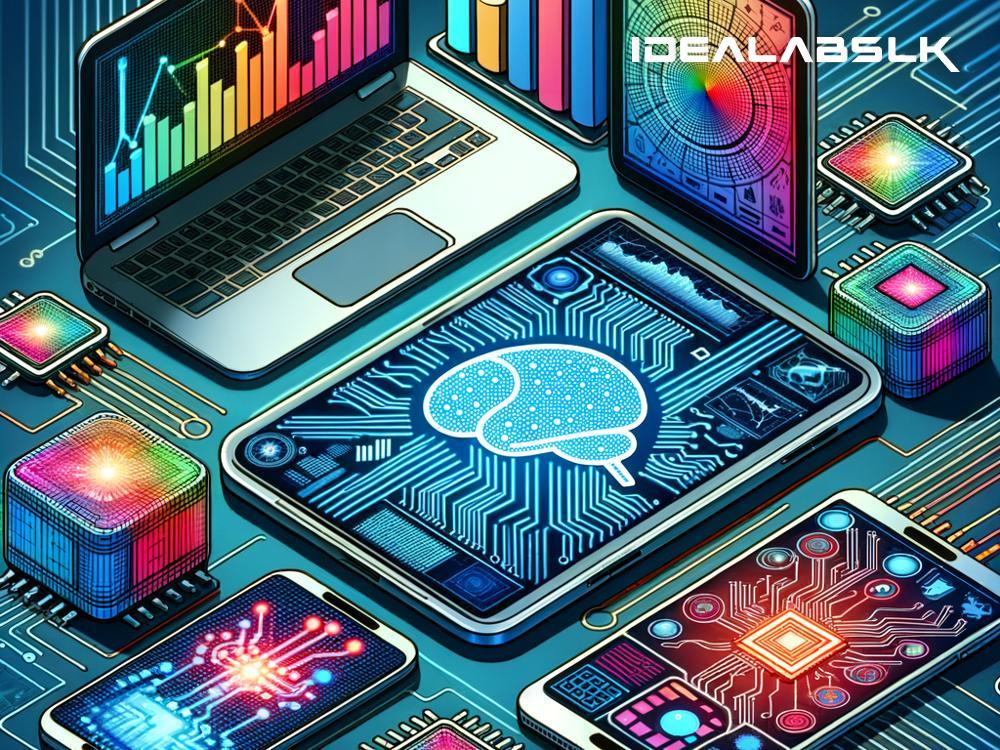Unleashing the Power of AI in Real-Time Analytics for Portable Devices
In a world that's becoming increasingly digital, the demand for portable devices with advanced capabilities is soaring. We're no longer satisfied with gadgets that merely allow us to make calls, send messages, or scroll through social media. Instead, we crave devices that can analyze information on the spot, assist us in making smart decisions quickly, and enhance our understanding of the world around us. This is where Artificial Intelligence (AI) steps in, revolutionizing how portable devices handle real-time analytics.
What is Real-Time Analytics?
Before diving into the role of AI, it's essential to understand what real-time analytics involves. Simply put, it's the process of examining data as soon as it becomes available. Imagine watching a sports game and getting stats about a player's performance instantly after they score. Or consider a health tracker that immediately analyzes your heart rate fluctuations and alerts you if something's amiss. That's real-time analytics in action - instantaneous insights at your fingertips.
The Role of AI in Enhancing Real-Time Analytics
Speed and Efficiency
One of the most significant challenges with real-time analytics is the sheer volume of data that needs to be processed swiftly. Portable devices, despite their advancements, have limitations in terms of processing power when compared to larger computing systems. This is where AI shines. AI algorithms can quickly sift through mountains of data, picking out relevant information and making sense of it in milliseconds. This speed and efficiency mean you get the insights you need without delay, making your device smarter and more responsive.
Predictive Analytics
AI doesn't just analyze the present; it's also forward-looking. Through predictive analytics, AI can use past and current data to make predictions about future events. For instance, if you're using a fitness tracker, AI can predict when you're likely to hit your fitness peak during a workout or when you should take a day off to avoid injury. This capability transforms your portable device from a passive data recorder to an active advisor, helping you make better decisions based on future possibilities.
Personalization
One size doesn't fit all, especially when it comes to analytics. AI enables personalized real-time analytics by learning from your behavior and preferences. Whether it's a smartphone suggesting apps based on your usage patterns or a smartwatch adjusting its health recommendations based on your fitness levels, AI tailors the experience to suit you. This personal touch not only enhances usability but also ensures that the insights you receive are relevant and actionable.
Overcoming Challenges with Limited Resources
Portable devices have constraints like battery life, processing power, and memory. AI helps navigate these challenges by optimizing how data is processed and analyzed. Some AI models are designed to be lightweight, reducing the load on the device's processor and conserving battery life. Others employ techniques like edge computing, where data is processed locally on the device rather than being sent to a server, thus saving on resources.
Real-World Applications
The impacts of AI-driven real-time analytics are vast and varied. In healthcare, wearables can monitor patients’ vitals in real time, offering immediate alerts and health advice. In the realm of sports and fitness, devices can provide athletes and enthusiasts with instant feedback on their performance, enabling them to adjust their strategies on the go. For the everyday consumer, smartphones equipped with AI can offer real-time language translation, making international travel smoother and more accessible.
The Future is Here
The integration of AI in portable devices for real-time analytics is not just a futuristic concept; it’s a reality that's evolving every day. As AI technology advances, we can expect our gadgets to become even more intuitive, providing us with not just data but wisdom that is tailored to our habits, preferences, and needs.
In conclusion, AI's role in automating real-time analytics in portable devices is transformative, making our interactions with technology more meaningful and insightful. By harnessing the power of AI, portable devices are not just tools but intelligent companions that understand and anticipate our needs, enriching our lives in countless ways. As we look to the future, the possibilities are as limitless as our imagination, with AI continuing to push the boundaries of what's possible in the palm of our hands.

